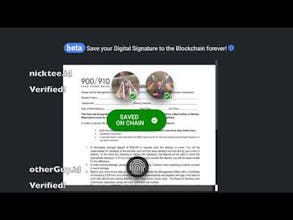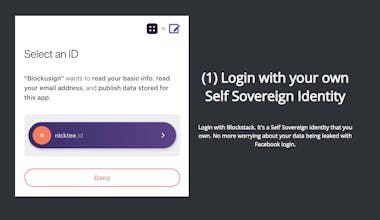
Blockusign
Secure Document Signing & Verification Powered by Blockchain
21 followers
Secure Document Signing & Verification Powered by Blockchain
21 followers
Encrypted Document Signing and Digital Notary - Powered by the Blockchain Secure DocuSign Alternative with Video Proofs!
















Sifted
Product Hunt
Blockusign
Blockusign
ArtSquare